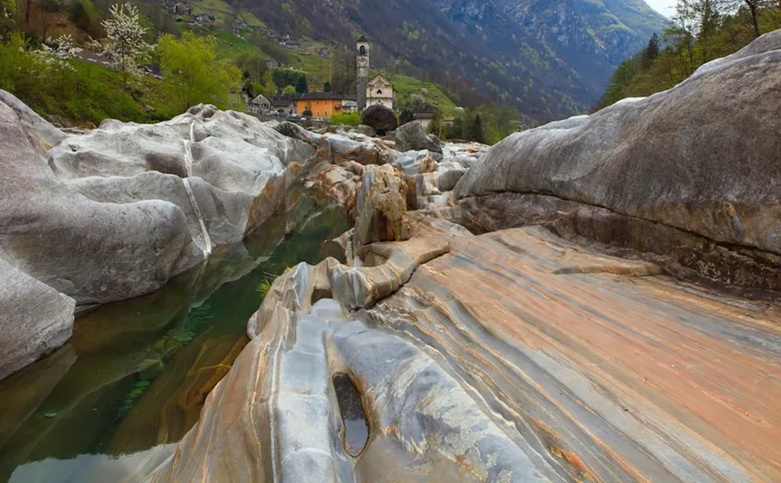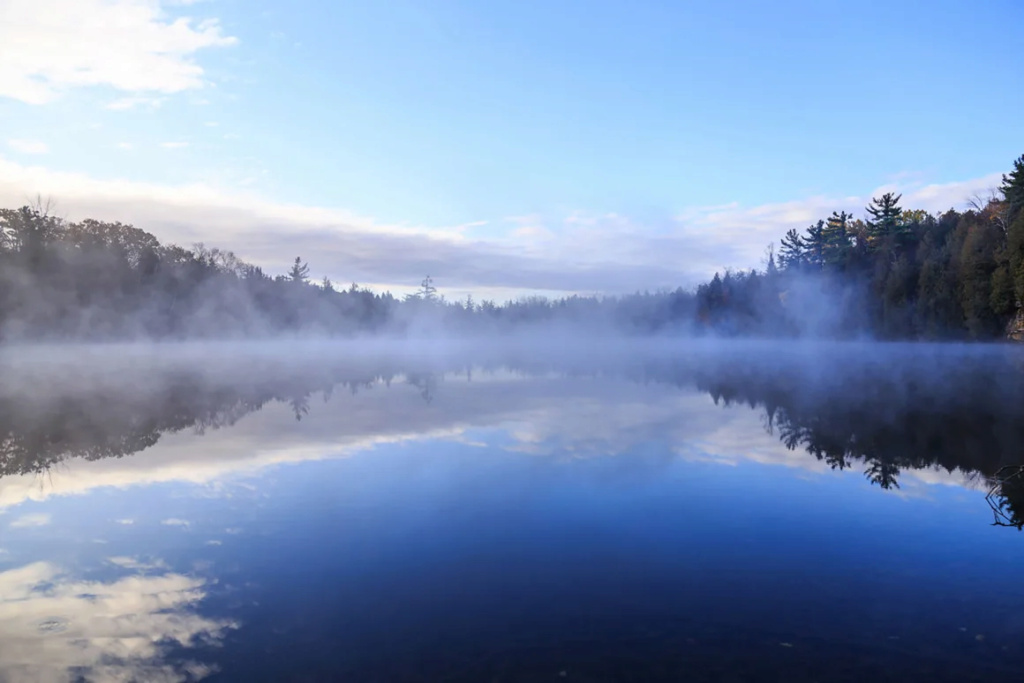Humanity is awaiting the announcement of a new geological era in the history of the planet

The announcement of the new era will constitute a paradigm shift in scientific thinking - CC0
Humanity is preparing to record a new geological era in the history of planet Earth, based primarily on human influence on the planet, and scientists have chosen the name “the Anthropocene era” for it.
Since 2009, a group of geologists have been collecting evidence of humanity's transition to a new geological era resulting from human influence... On Tuesday, they will announce their latest findings: It is the starting location of the Anthropocene era, when the massive human impact on the planet began.
The expected announcement on Tuesday during two scientific conferences in the French city of Lille and the German capital, Berlin, will culminate, without firm conclusions, a scientific adventure launched in 2002 by Paul Crutzen, who won the Nobel Prize in Chemistry thanks to his identification of the sources of the destruction of the ozone layer, and he was the first to talk about the emergence of this era in which It is described as the "Age of Human Influence", in a theory that has not received official approval from the highest scientific authorities.
The Earth's 4.6 billion-year history is systematically divided into geological eras, periods, epochs and epochs, a division learned by students and developed by the International Commission on Stratigraphy. Humanity is currently living in the Cenozoic period, the Quaternary era, the Holocene era (the modern era).
It is this committee that assigned the Working Group on the Anthropocene (the era of human influence) the task of answering, de facto, three main questions.
According to these questions, if in the next million years a group of space beings searches the layers of rocks and sediments on Earth, will they discover a human trace important enough to conclude that a new geological frontier has clearly been crossed? If so, when will we find the clearest evidence of this? And where?
Very difficult
Regarding the first question, the working group’s answer is unequivocal, as they confirm that humans actually took the planet out of the Holocene era, which began 11,700 years ago, after several glacial cycles, and transferred it to a “new world.”

The effects of human activity, from microplastics to eternal chemical pollutants through to invasive species and greenhouse gases, are present everywhere, from mountain tops to ocean floors, and the disturbances they cause are many, including climate change, pollution, and loss of biodiversity, to the point of Breaking the natural balance of the Earth.
For the team, the turning point is the mid-20th century, when all indicators of human influence in the sediments saw a dramatic increase that scientists call the “Great Acceleration.”
It remains to determine the symbolic place where this transformation is most evident. This may be in a lake, a coral reef, or an ice block... ...Nine locations in China, Canada, Japan and elsewhere have been shortlisted as potential locations in this framework.
There is still great ambiguity surrounding this topic, especially in terms of knowing whether this work will be officially approved by the members of the International Commission on Stratigraphy, and then by the guardians of the International Union of Geological Sciences, which is known for its rigidity when it comes to amending the International Charter for the History of Earth's Stratigraphy.
The prevailing impression indicates great difficulty in this regard. Some well-known geologists believe that the technical criteria required to characterize the Anthropocene as a new “epoch” have not been met, although they acknowledge that radical changes have occurred over the past century.
The Anthropocene is "real" So Phil Gibbard, secretary of the International Commission on Stratigraphy, believes the term "geological event" would be more appropriate.
Gibbard stressed in 2022 that “the conditions that caused the glaciations,” a series of dozens of glacial cycles that occurred over the past million years, “have not changed, so we can expect that the Holocene will only be an interglacial epoch.”

But, according to proponents of the Anthropocene as an glacial epoch, for the first time in human history, not only has a species radically changed the Earth's morphology, chemistry and biology, but it is aware that it has done so.
Naming the era would push humanity to focus on future challenges, which Paul Crutzen called “a qualitative shift in scientific thinking.”
"We have to acknowledge that there are turning points," Johan Rockström, director of the Potsdam Institute for Research on the Impacts of Climate Change, an author of a landmark study on planetary boundaries, told AFP.
For the head of the working group, Jan Zalasiewicz, disbelieving the transition to the Anthropocene would leave the impression that the conditions of the Holocene, which allowed human civilization to flourish, still exist.
“It is clear that this is not the case,” he told AFP, adding that “science is about distinguishing between what is real and what is not. The Anthropocene is real.”
Regarding the impact of humans on the planet, researchers in the depths of Beppu Bay in Japan discovered a treasure in layers of sediment and mud, which is material evidence that humanity has changed the planet Earth.
Beppu is one of the sites nominated to embody the transition to the Anthropocene.

Michinobu Kuwai, a professor at the Ehime Center for Marine Environmental Studies, has been studying the site for about a decade. His research initially focused on the impact of climate change on fish populations, with fish scales in sediment stocks providing clues.
Only recently did the site begin to be considered a hotspot for studying the Anthropocene, given “the multiple human signatures that include man-made chemicals and radionuclides found in the Gulf’s sedimentary layers.”
"Human impact on Earth"
To be considered significant, a site must provide evidence dating back at least a century and signs of anthropogenic origin such as insignia of nuclear testing, ecosystem change and industrial development.
It must also provide complete archives for the period studied, and information that allows scholars to identify each layer with the period during which it was formed.
Researchers consider coral reefs a good candidate because they grow in layers like tree trunks and absorb elements dissolved in the water, such as waste from nuclear tests.
But coral reefs cannot capture items that do not dissolve in water, such as microplastic particles.

Beibu Gulf sediments contain fertilizers and elements from officially dated historical floods, as well as fish scales and plastic. Among the most striking data, according to Kawaii and Yokoyama, are fingerprints from a series of nuclear tests conducted in the Pacific Ocean between 1946 and 1963.
The tests produced globally detectable atmospheric radiation, but also direct waste was detected in close proximity to the test sites. “Both can be discovered,” Yokoyama commented.
Samples taken from the bay showed amounts of plutonium consistent with specific nuclear tests, and this matched similar results at the nearby Ishigaki reef.
Source: websites

